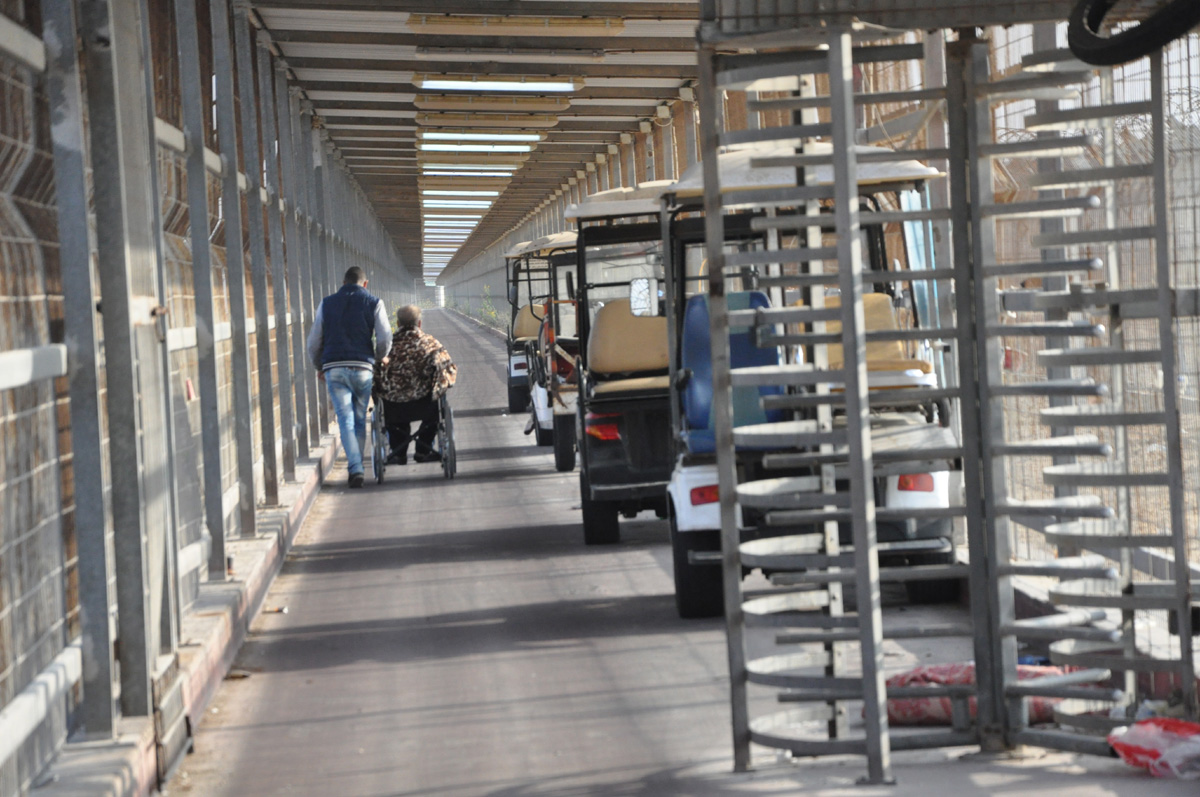
Ref: 58/2020
Date: 23 June 2020
Time: 13:00 GMT
On Monday, 22 June 2020, a child suffering from heart disease died due to his inability to travel through Beit Hanoun “Erez” Crossing for treatment in al-Maqassed Hospital in occupied East Jerusalem, despite obtaining a medical referral and financial coverage from the Palestinian Ministry of Health (MOH). The Palestinian Centre for Human Rights (PCHR) received dozens of appeals and complaints from critically ill patients whose treatment is not available at Gaza hospitals, requesting help in receiving treatment abroad after suspension of travel coordination for Gaza’s patients between Israeli authorities and the Palestinian General Authority for Civil Affairs (GACA).
According to PCHR’s follow-up, on 21 May 2020, the Coordination and Liaison Department in the Palestinian Ministry of Health (MOH) suspended the travel coordination for the Gaza Strip patients who receive treatment at hospitals in Israel or the West Bank. This move came upon the Palestinian President’s decision stating that the State of Palestine and the Palestine Liberation Organization (PLO) are no longer bound by treaties and agreements with the American and Israeli governments and all consequent obligations to such treaties and agreements. As a result, dozens of critically ill patients, whose health conditions cannot afford any delay, were deprived of traveling abroad for treatment or completing the treatment protocols they had started in previous periods, noting that they had already obtained medical referrals and financial coverage.
In light of these developments, PCHR documented, on 22 June 2020, the death of a child Anwar Mohammed Anwar Harb, a resident of Gaza City, who suffered a heart disease and was on assisted ventilation. Harb’s death was the direct result of his inability to travel for treatment at al-Maqassed Hospital in occupied East Jerusalem. It should be noted that the ambulance was not allowed to transfer him from al-Shifa Hospital in Gaza City to Erez crossing, after suspending the travel coordination for Gaza’s patients between Israeli authorities and GACA.
This decision has aggravated the suffering of at least 8,326 cancer patients, in addition to hundreds of patients who need urgent surgical intervention and their treatment is not available at Gaza Strip hospitals due to the weak health system; deficient health service provided for them and for cancer patients in the Gaza hospitals, including the two hospitals that the MOH contracted to provide treatment for cancer patients; and the severe lack of medicines and medical consumables in MOH warehouses and hospitals. MOH warehouses and hospitals have a 44% shortage in medicines, 30% in medical consumables, laboratory analysis (55%), as well as equipment used for radiotherapy for cancer patients which the Israeli authorities stopped supplying to the Gaza Strip, chemotherapy medications, and periodic cancer patients laboratory tests.
In 2019, PCHR’s Legal Aid Unit managed to aid 737 patients to receive medical treatment abroad; in addition to 207 patients from 01 January to 09 June 2020.
PCHR fears that the suffering of patients in the Gaza Strip, whose right to health and access to medical treatment has been violated, as well as their right to movement and access to hospitals outside the Gaza Strip, will exacerbate; hence PCHR: